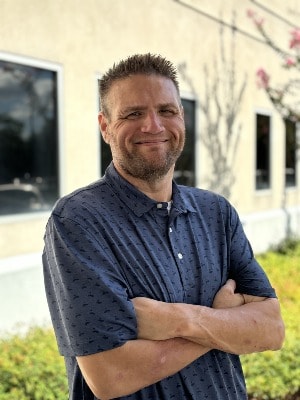When You Can't 'Just Say No'

 Ryan Moody’s slippery slope started innocently enough.
Ryan Moody’s slippery slope started innocently enough.
“I took my first pain pill after my first knee surgery in 2000,” says Ryan, 42, of Ecru. Weighing close to 300 pounds and playing high school football, baseball and basketball had wreaked havoc on his knees—so he endured multiple surgeries over the years.
“When I could no longer get Percocet, hydrocodone or Tramadol by prescription, I got it illegally,” he says. “It wasn’t hard to get—I’d get 10 here, 15 there—to take care of when I was really hurting.”
Around 2008, Ryan was dealing with stress and anxiety at work. “When I would take a few pills, my shoulders would relax and it would free me up and put me in a good mental space,” he says.
As time went by, Ryan noticed the effects weren’t lasting like before. “I would take one and a few hours later I needed the medicine again,” he says.
Sensing something was off, Ryan went to his doctor for drug testing. “When the doctor came into the room, I could see it in his eyes,” he says. “I found out that instead of what I thought I was buying, I had been given fentanyl instead, and I was hooked on it.”
Fentanyl is a prescription opioid used to treat moderate to severe pain, but it can be misused and abused. It can cause overdose deaths when made and used illegally. This powerful synthetic opioid is up to 100 times stronger than other opioids like morphine, heroin or oxycodone.
Drug dealers lace illicit drugs with fentanyl for several reasons. Because it’s highly addictive, it helps ensure return customers. It’s also a cheap alternative to other opioids, so even though these counterfeit pills look the part, they often contain fentanyl and none of the promised drug.
“I knew what fentanyl was, but I had no idea I was on it, and it freaked me out,” Ryan says. “I can’t explain how helpless and hopeless I felt.”
Even though Ryan immediately realized he needed help, he says his “addict brain” would not allow it. “I knew I had a problem,” he says, “but I wasn’t ready to take care of the problem.”
Ryan was afraid his family might forbid him from seeing his beloved nieces and nephews – and that was a risk he simply wasn’t willing to take.
Almost a year later, “Finally, the breaking point came one day when I woke up laid out in the yard in the middle of an apartment complex,” Ryan says. “I told my parents that I needed help.”
Ryan understands how drug addiction leads to criminal activity. “Thank God, I got help... but if I hadn’t had the money to buy pills, I would have done anything to get them,” he says. “When you need one, it feels like the flu times 1,000. I can’t describe how bad it is. I was never suicidal, but I told God if he would take me, it would be okay.”
After spending time in a detoxification facility in Columbus and a treatment facility in Brandon, Ryan was on the road to recovery. “I had become a terrible friend and withdrew from my family because I felt like a fake and didn’t want to be around them,” he says. “But when I came back, these people I had pushed to the side and treated like trash embraced me with open arms. My family and friends are a big part of my recovery.”
But recovery is a marathon rather than a sprint, and you must be in it for the long haul. When Ryan returned from rehabilitation, he began seeing Dr. Drew Blackstock, an addiction medicine specialist at North Mississippi Regional Pain Consultants.
Dr. Blackstock started Ryan on medication-assisted therapy to help maintain sobriety. Treatment requires that he undergo drug testing every month, which Ryan gladly obliges because it helps keep him honest.
Dr. Blackstock also recommended Ryan see Eydie Pullman with North Mississippi Medical Center-Pontotoc for monthly counseling. “I had never been to therapy before, but because I have so much respect for Dr. Blackstock, I agreed to do it,” he said. “I totally opened up to Eydie, and she has really helped me understand my situation.”
Three years clean, Ryan is grateful to everyone who has played a role in his recovery. “I come from a great family, and I have zero excuse. I take full accountability,” he says. “If you’ll do your part, Dr. Blackstock and his team will 100% do their part.”
Ryan Moody is proof that drug recovery is possible